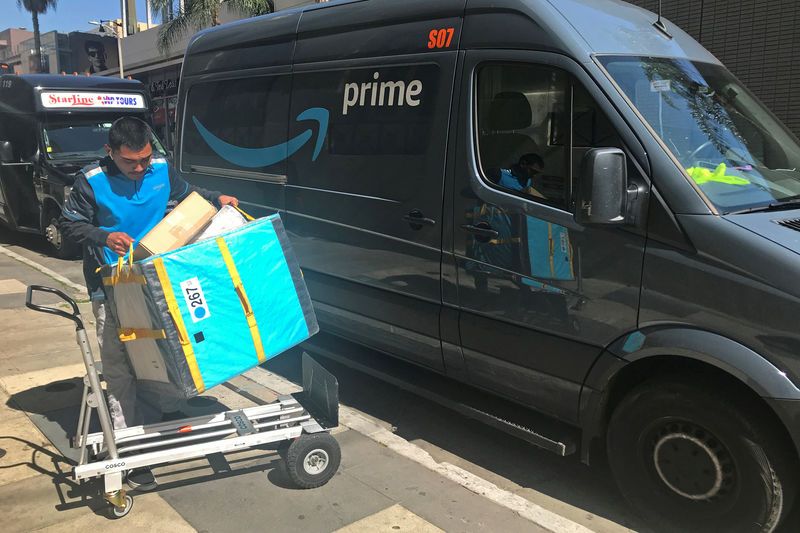

By Lisa Baertlein
LOS ANGELES (Reuters) – As Amazon.com Inc targets traditional brokerages that match shippers with truckers, it’s also battling a bevy of startups – including Uber Freight and a company funded by the e-commerce giant’s founder Jeff Bezos.
The world’s biggest retailer made a splash in truck brokerage circles after Freight Waves reported on Friday that Amazon’s service, launched in a handful of Northeastern states last summer, was discounting market rates by as much as one-third.
“The analysis suggesting dramatic undercutting of pricing is false,” Amazon said in a statement.
The company – which is investing billions of dollars to build an air, sea and land shipping network to contain its own costs – has never been shy about squeezing the companies it seeks to unseat.
Analysts said its fight for a slice of the more than $700 billion (536.8 billion pounds) U.S. companies spend on trucking each year could pose a long-term threat to leading truck brokers like C.H. Robinson Worldwide and United Parcel Service.
But, they added, that could be offset by Amazon’s penchant for competing with the companies that sell on its site or pay for its services.
“Not all customers will be looking to turn over their confidential supply chain data to Amazon, particularly larger players in the retail and consumer products businesses,” Cowen & Co analyst Jason Seidl said in a note.
Investors are betting that technology can transform the fragmented truck brokerage business that ran for decades on personal relationships and telephone calls.
They’ve poured millions of dollars into startups like Uber, Transfix and Convoy – the latter of which raised nearly $270 million from Bezos and other backers.
Anheuser-Busch InBev, Colgate-Palmolive Co and other companies have kicked the tires on those upstarts, which aim to dominate by building a massive network of shippers and drivers.
Three shippers, who spoke on the condition of anonymity, said Uber Freight is pricing aggressively as it fights for a foothold and its parent Uber Technologies racks up massive losses.
David Uncapher, Owens Corning’s director of global transportation until late last year, said Convoy’s prices were 5 to 15 percent lower than the company’s other brokers, which had far greater geographic reach.
Amazon declined to comment on Convoy, which did not immediately respond to a request for comment.
Skeptics said startups don’t have a lock on new technology and noted that Coyote Logistics, the truck brokerage UPS bought for $1.8 billion in 2015, did a better-than-expected job of holding down the delivery company’s costs during the 2018 holiday shipping surge.
(Reporting by Lisa Baertlein in Los Angeles; editing by Darren Schuettler)












